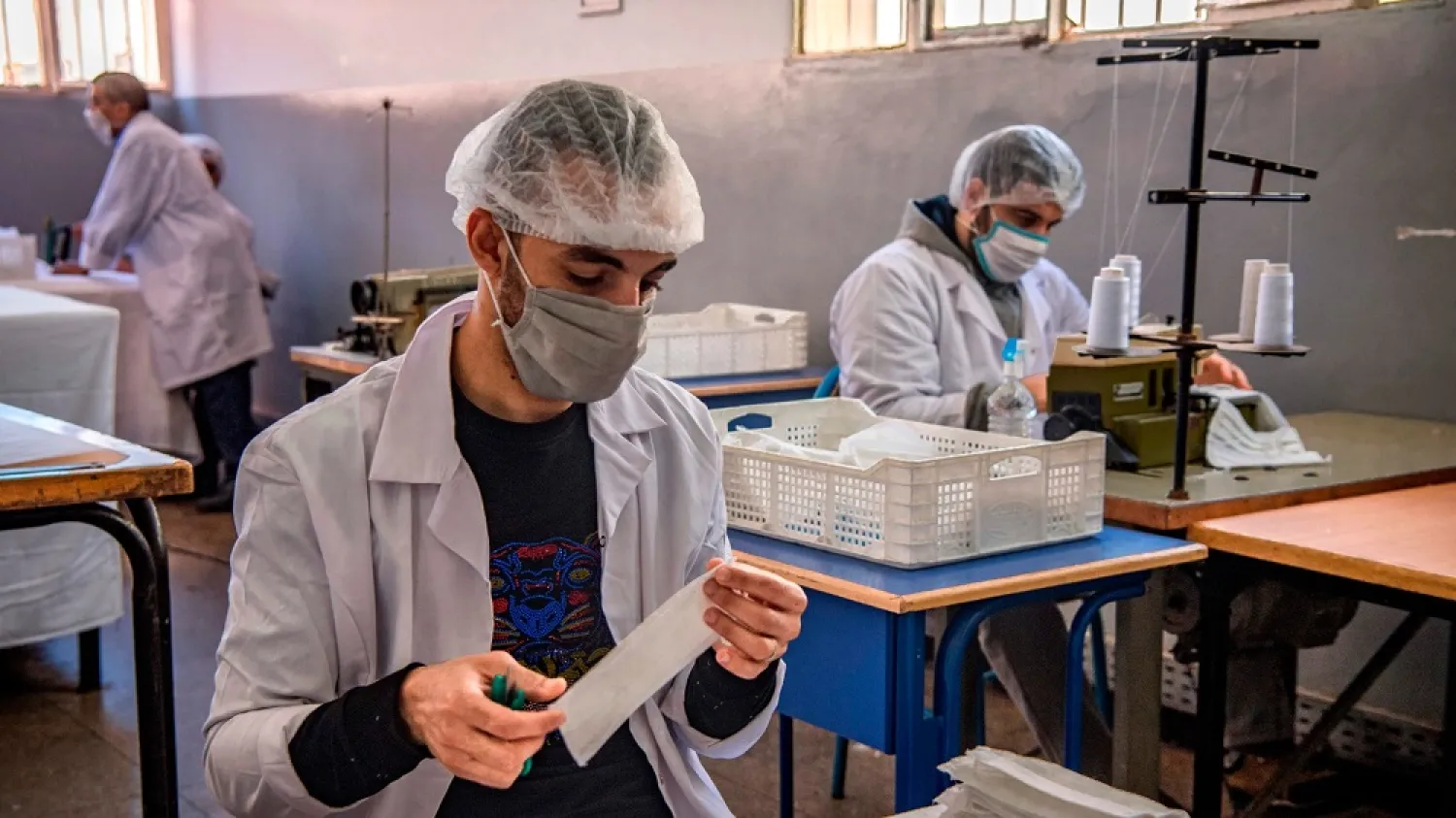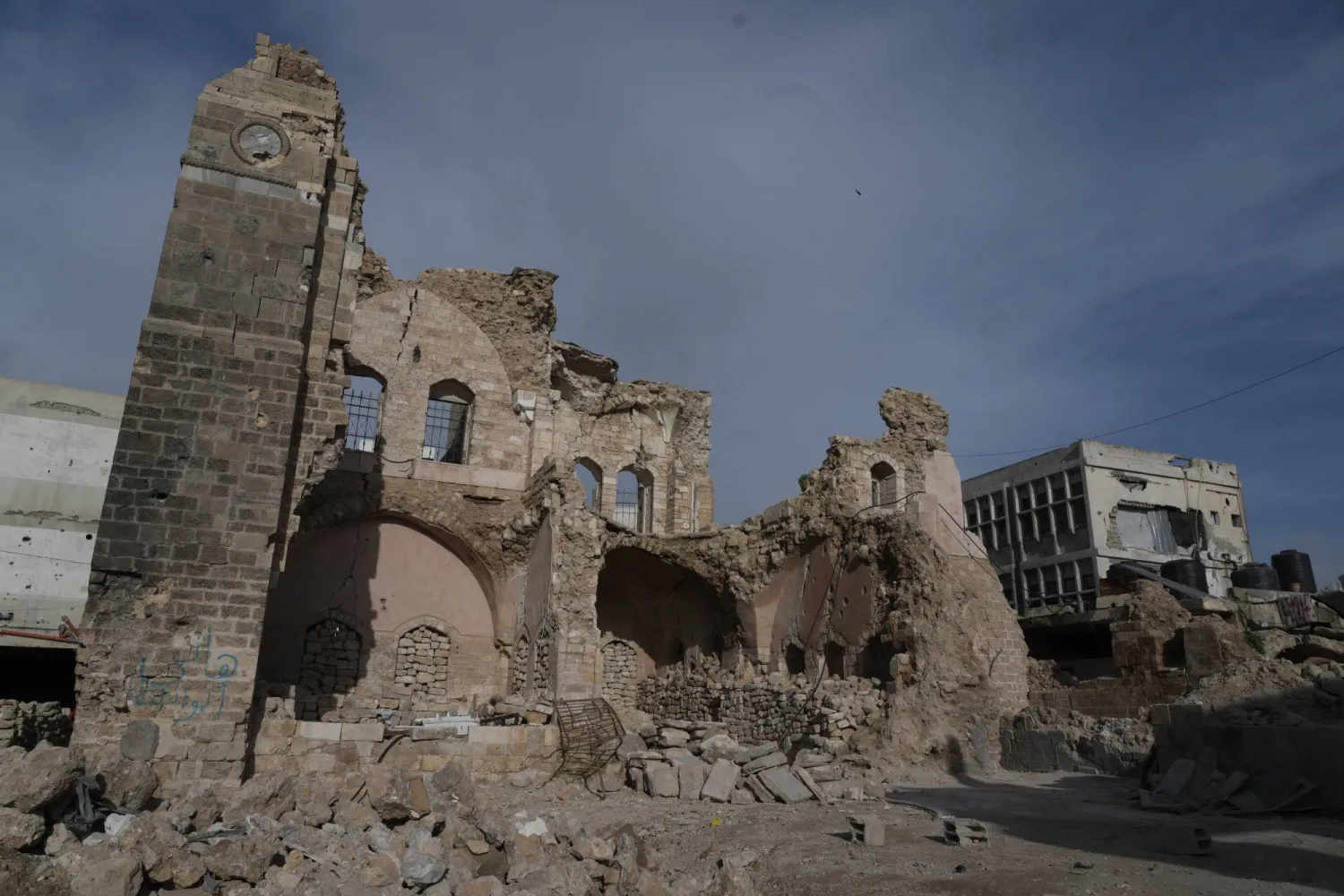Muneer Elbaz remembers the joy of visiting the Great Omari Mosque in Gaza with his family, praying at a site where people have worshipped over centuries as empires came and went.
“These were the best days,” Elbaz said, as he recalled promenading through the lively markets around the mosque before the Israel-Hamas war. “This place transports us from one era to another.”
Today, much of the mosque stands in ruins — like most of Gaza — after being hit by Israeli strikes in the two-year war muffled by an uncertain ceasefire. The sight of the rubble brings to mind “a tree that had been uprooted from the land,” said Elbaz, a Palestinian heritage consultant involved with recovery work at the site.
Israel’s military offensive killed over 72,000 Palestinians, according to Gaza's Health Ministry, and erased entire extended families.
Gone too is some of the heritage of a land with a rich history going back to ancient times. The mosque was built on a site where a Byzantine church had stood, and changed hands and even religions as one invader followed another, The Associated Press said.
With major military operations halted, Palestinians are gaining a clearer picture of the destruction. Some organizations are trying to save what they can at historical sites, even as full-scale restoration — and the broader reconstruction of the territory — face major obstacles.
Dozens of sites were damaged Israel launched its offensive after Hamas-led militants killed some 1,200 people, mostly civilians, and took another 251 hostage in the Oct. 7, 2023, attack. The military accuses Hamas of concealing military assets beneath or near heritage sites, as well as other civilian structures.
The UN cultural agency, in an ongoing assessment based on satellite images, says it has verified damage to at least 150 sites since the start of the war. They include 14 religious sites, 115 buildings of historical or artistic interest, nine monuments and eight archaeological sites.
They are fragments of Gaza’s soul, connecting Palestinians to a place and a history that many fear is at risk of being erased.
“These sites were an important element that solidifies the presence of the Palestinian people on this land and that represents the continuity of their cultural identity,” said Issam Juha, co-director of the Center for Cultural Heritage Preservation, based in the Israeli-occupied West Bank.
“They want to erase the Palestinian identity and Palestinian heritage and ... to remove any connection that keeps the Palestinian society clinging to this land,” he said.
The center is doing urgent rescue work at the badly damaged Pasha Palace, which housed centuries-old artifacts, many of which appear to have been looted, Juha said. Among the missing items are an Ottoman-era Quranic manuscript, jewelry from the medieval Mamluk era and a Roman-era sarcophagus from which only some fragments have been recovered, according to Hamouda al-Dohdar, an expert working at the site.
The Israeli military said it struck “a Hamas military compound and an anti-tank missile array” at the site. It said its forces struck a “terror tunnel” at the Omari mosque. It did not provide evidence in either case.
Amir Abu al-Omrain, an official with Gaza's endowments ministry, part of the Hamas-run government, denied the allegation about the mosque.
UNESCO does not have a mandate to assign responsibility for the damage it assesses.
An independent commission established by the UN’s Human Rights Council said it was not aware of any evidence of a tunnel shaft in the mosque. Noting the Israeli allegations about the mosque, it said that even the presence of a "legitimate military objective ... would not have justified the resulting damage.” Israel has previously accused the commission of bias.
The centuries-old Saint Porphyrius Orthodox church complex, which had been sheltering displaced Palestinians, was also hit in an Israeli attack early in the war, causing deaths and injuries. The military said it had targeted a nearby Hamas command center. UNESCO said the church complex was moderately damaged.
Some of Gaza's heritage sites appear to have been spared. UNESCO said it has found no evidence of damage at the Saint Hilarion Monastery, dating to the 4th century.
Under international law, cultural property should not be targeted or used for military purposes.
The Israeli military says it takes the sensitivity of cultural and religious sites into account, aims to minimize damage to civilian infrastructure and adheres to international law.
A rich history
Artifacts and accounts stretching back thousands of years testify to Gaza’s long history of commerce and conflict. Egypt’s pharaohs sent chariots through the low-lying coastal strip in their wars with the Hittites in modern-day Türkiye. Traders in Gaza did brisk business with the ancient Greeks.
The Omari mosque, named for Islam’s second caliph, was initially built in the seventh century. Centuries later, the Crusaders converted it into a cathedral, and it went back to being a mosque after they were expelled, said Stephennie Mulder, associate professor of Islamic art at the University of Texas at Austin.
The mosque was damaged during World War I, when the British shelled Gaza in their campaign against the Ottoman Turks, and was later rebuilt.
“The building itself told the story of Gaza’s past as a crossroads of trade, armies, empires, and religious traditions,” said Mulder. “For many Gazans, the Omari mosque stood as a beloved symbol of multiplicity, resilience and persistence.”
More than stones
Mohammad Shareef, 62, remembers attending prayers at the mosque with his father when he was a child, and studying for exams in its quiet confines. Years later, he would bring his own children there. He wept when it was hit.
“We were raised in it and around it, and there’s no stone here that we haven’t stepped on,” he said. “For the people of Gaza, this is their history.”
The loss will feel particularly acute during the Muslim holy month of Ramadan, which begins later this month. Before the war, thousands converged on the mosque for Ramadan prayers amid a festive atmosphere. This year, a large tented structure has been erected.
In recent days, workers have been filling wheelbarrows in the shadow of a damaged minaret.
Hosni Almazloum, an engineer working at the site, said the mosque’s prayer hall ceiling had collapsed and columns had crumbled. He said it could be rebuilt, if construction supplies are allowed in. For now, teams have been focused on recovery and preventing further damage, sifting through and storing stones.
The US-brokered ceasefire agreement, which halted most of the fighting in October, gives no timeline for Gaza’s reconstruction, which may prove impossible if Israel maintains the blockade it imposed on the territory when Hamas seized power in 2007, after the militant group won Palestinian elections in 2006.
Many historic sites suffered from neglect before the war. The blockade and previous Israel-Hamas wars, along with a lack of resources and urban sprawl, posed challenges. Hamas-run authorities have leveled parts of what archaeologists believe was a Bronze Age settlement to make way for construction projects.
Elbaz says that before the ceasefire, grief was a luxury he couldn’t afford — his family was just trying to survive.
“What would you begin to cry over?” he asked. “The historic mosques or your home or your history or your children’s schools or the streets?”
Now, as he processes the war’s toll, he sometimes weeps, away from the eyes of his children.
“Gaza is our mother,” he said. “We have memories everywhere — in this tree, this flower, this garden and this mosque. Yes, we cry over every part of Gaza.”












